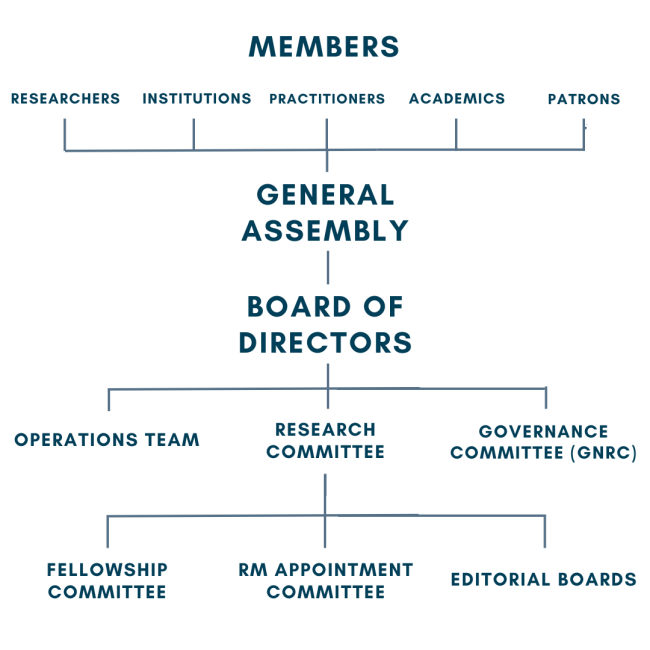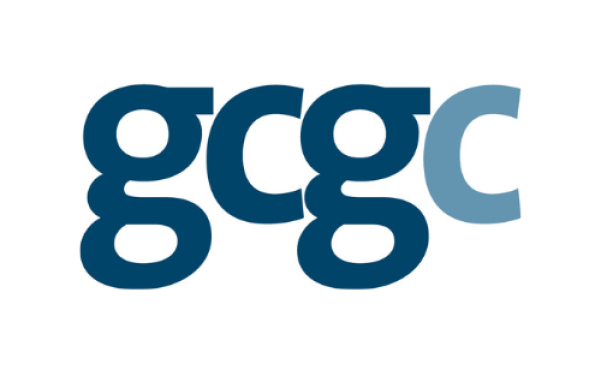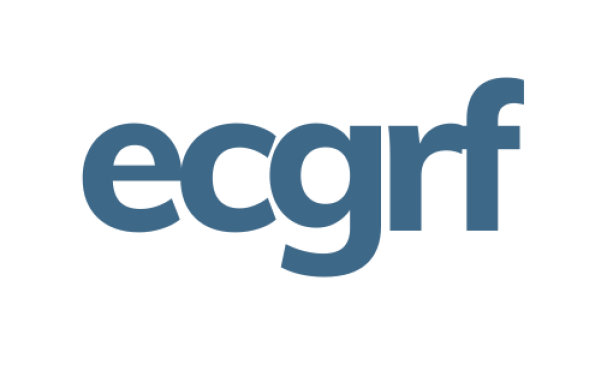The ECGI Board
ECGI Board Composition
Chair
Appointed to the Board: 2020
Director
Appointed to the Board: 2021
Director
Appointed to the Board: 2022
Vice Chair
Appointed to the Board: 2022
Director
Appointed to the Board: 2022
Director
Appointed to the Board: 2017
Executive Director
Appointed to the Board: 2002
Director
Appointed to the Board: 2018
Director
Appointed to the Board: 2020
The powers of the ECGI Board are provided in accordance with the Articles of Association:
Article 12 - Board
12.1 The Board has a minimum of 3 and a maximum of 11 directors. A majority of directors are nominated and elected among persons qualifying for research membership of the Institute. Such directors are deemed to resign when the pre-conditions for research membership no longer apply.
12.2 In case of a vacancy, the Board has the power to provide for an interim director pending a decision by the next General Assembly.
12.3 The General Assembly may decide to remove a director. Such decision requires a two-thirds majority of the votes of the Members present or represented.
12.4 The Board elects a Chair amongst the directors that do not qualify for academic or research membership of the Institute and a Vice-Chair who qualifies for academic or research membership, or vice versa.
12.5 The Chair, the Vice-Chair or two Directors convene meetings of the Board. Save in an emergency, notice of meetings shall be served at least 15 calendar days in advance.
12.6 Board meetings may be held both physically and by online telecommunication. If a board meeting is held by online telecommunications, directors shall have received timely information enabling them to express a fully considered opinion on the items on the agenda. Items voted on during an online telecommunications meeting shall be recalled and confirmed at the next following physical meeting. Nevertheless, absence of such confirmation shall not invalidate the decisions taken.
12.7 The maximum term of the office for Directors shall be 3 years. Directors may be re-elected.
12.8 The minutes of the Board shall be signed by the Chair and kept in a separate file at the Institute's registered office by an appointee entrusted with daily management, at the disposal of the Board members.
12.9 Every director shall declare potential conflicts of interest to the Chair or the Vice- Chair at the time he/she is approached to fulfil that function, and thereafter if new conflicts arise. In case a conflict is declared, the Chair or Vice-Chair, assisted by two other Directors designated ad hoc by the Board, shall decide what measures, if any, are necessary to avoid undesirable consequences of such conflict. They shall inform the whole Board without delay of the existence and nature of the conflict and of any measures taken in consequence.
Article 13 - Powers of the Board
13.1 The Board shall have all powers necessary to pursue the objectives of the Association, and to effect and complete all management, administration and disposal acts, with the exception of the powers reserved by law or by these Articles to the General Assembly.
Article 14 - Representation of the Institute
14.1 Without prejudice to the Board’s powers to delegate daily management, the acts binding the Institute with regard to third parties are validly signed by the Chair, acting individually, the Vice-Chair, acting individually, or by two directors, acting jointly, or by a holder of special powers of attorney. Legal proceedings, either as plaintiff or defendant, are conducted by the Board represented by the Chair or by any person the Board has designated to that effect.
Article 15 – Committees
15.1 The Board shall appoint a Membership Committee and a Research Member Committee. It may appoint such other committees that it deems useful for the proper governance of the Institute, such as a Management Committee.
15.2 The Board determines the terms of reference and powers of the committees it appoints. Committees report to the Board on their activities.
Article 16 - Delegation of daily management
16.1 The Board may under its responsibility delegate the day-to-day management of the affairs of the Institute in whole or in part to one or more appointees who may or not be Board members.
16.2 The Board shall define the appointees’ respective titles, powers and remunerations.
16.3 For the scientific part of the Institute’s affairs, the relevant appointee shall qualify for academic or research membership of the Institute.
16.4 The maximum term of the office of an appointee that includes scientific affairs shall be 3 years. Such appointment may be renewed.

Quick links
The Global Corporate Governance Colloquia (GCGC)
GCGC is a partnership of 12 leading universities from Asia, Europe and the US which convenes annually with papers and participants from the fields of law and finance. ECGI is responsible for the general operation of GCGC and organisation of the annual conference.
The European Corporate Governance Research Foundation (ECGRF)
ECGRF is a charitable foundation which was established to provide long-term support for ECGI. ECGI reports annually to the Trustees of the Foundation and manages its general operations.
















